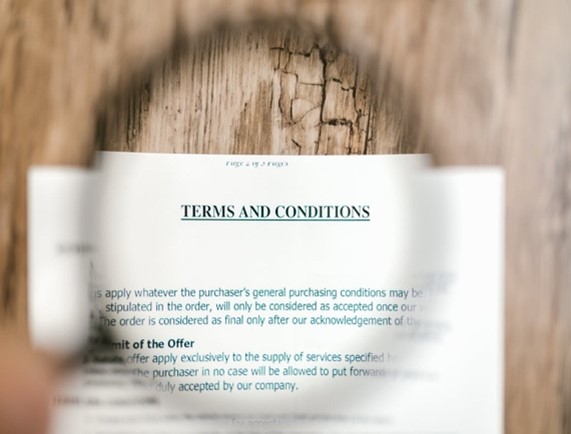I. CONDITIONALS

1. CONDITIONAL ZERO
We use zero conditional to talk about things that are always true or normally happen. For example:
If (condition) +. Clause (result)
Simple present + simple present.
If I heat the water it boils.
condition: If I heat the water
clause: it boils
Conditional sentences are sentences that express one thing contingent on something else. They are so called because the impact of the main clause of the sentence is conditional on the dependent clause.
1.1. Conditional type 1_ [present simple, continuous, perfect + future, can, must, might may] for example:
To talk about a probable event happening in the future.
If you work you will earn money.
If he call you tell me as soon as you can.
If we win we are going to celebrate.
1.2. Conditional type 2_. [past simple, continuous, + would, could, might + infinitive]
To talk about present or future hypothetical or unreal situations.
-
- If I won the biggest prize on the lottery. I would buy a big house.
- If you weren’t talking I could focus on it.
- If I were you I might wait before making a decision.
1.3. Conditional type 3_. [past perfect simple and continuous, + would, could, might + have + past participle]
To talk about a past hypothetical or unreal situations.
-
- If I had earn more money. You would have bought those gadgets.
- If I hadn’t been wearing a helmet. I could have died.
1.4. Mixed conditionals 1_. [past perfect simple and continuous, + would, could, might + infinitive]
To talk about a past hypothetical or unreal situations with a present result.
-
- If I had won the lottery. Now I would be wealthy.
- If I hadn’t been wearing a helmet. I might be dead now.
1.4. Mixed conditionals 2_. [pastsimple and continuous, + would, could, might + have + past participle]
To talk about a past hypothetical or unreal situations with a past result.
-
- If I had won the lottery. Now I would be wealthy.
- If I hadn’t been wearing a helmet. I might be dead now.
II. II. MIXED CONDITIONALS
We use mixed conditionals if we want to mix talking about the present and the past in the same sentence. The mixed conditional is a combination of the second and the third conditional:
➪ We can use past simple or continuous in the if-clause (to refer to the present or future), and would/should/might have + past participle in the main clause (to refer to the past).
➪ We can also use past perfect in the if-clause (to refer to the past), and would/should/might + infinitive (to refer to the present).
- If I didn’t have (second conditional) so much work, I would have gone (third conditional) to the party last night.
- If I spoke (second conditional) German, I would have understood (third conditional) them.
- If I had won (third conditional) the lottery, I would be (second conditional) rich.
- If I hadn’t dropped (third conditional) school, I could have (second conditional) a better job now
 RECOGNIZING CONDITIONALS IN THEORY
RECOGNIZING CONDITIONALS IN THEORY
- Conditionals are sentences with two clauses, an “if” clause and a main clause, that are closely related. Generally, conditional sentences are often divided into different types.
- Zero conditional. We use the zero conditional to talk about things that are always true, like a scientific fact. For example: If you mix blue and red, you get purple.
- First conditional. We use the fist conditional when we talk about possibilities in the present or in the future. For example: If I find the address, I’ll send her an invitation.
- Second conditional: the second conditional is used to talk about Imaginary situations in the present or future. For example: If I were rich, I would buy a smartphone.
- Third conditional: we use the third conditional when we talk about Imagine situations in the past. For example: If she had studied harder, she could have passed the exam.
- Mixed conditonals: we use when Present result of a past condition, for example, If she hadn’t stayed late last night she wouldn’t be so tired now. And past result of a present or continuing condition. For example: If I were you, I would have learned Japanese before going to the country.

III. CONSOLIDATION
- NOW TRY THE FOLLOWING QUIZ. Choose a, b, c or d to answer the following questions correctly.
IV. EXERCISE I
V. READING TEXT
The IF Generation
Nowadays many people have issues with apreciating what they have; it is always the matter of “If I were richer…”, “If I were younger…”, “If I were him…”etc. I don’t have a problem with the fact we want more from our lives; what annoys me is the fact that we keep saying what we would do “IF”…

When I was younger, I thought that if my parents had been richer, I could have been more fortunate with my life. I was losing my time on thinking that if I had been born in the family of my cousin, I would have enjoyed private tennis lessons, skiing, holidays in Austria or expensive, fashionable clothes. What I didn’t take into consideration back then was the fact that I didn’t really like sport. I absolutely hated skiing and expensive clothes often covered the lack of personality. In other words, I was jealous of the things that I didn’t want.
Nowadays I keep finding myself the new “ifs” that can successfully keep me away from being happy. I think that if I had more time, I would start going to the gym; If I had more money, I would eat healthy etc. An overweight 30-year-old-woman, always complaining about how difficult life is.
But the problem of “ifs” doesn’t finish here. We tent to overuse the first conditional in quite straightforward situations. “I’ll visit you if I have time” usually means “I won’t visit you, I’m busy” or “I will not lend you the money, do not put me in an uncomfortable situation”. Why do we choose to send confusing messages when we can simply say what we think? We must be only politically correct anymore; we must be socially correct too.
VI. PRACTICE 1
For each question or statement, mark the correct letter a, b or c
VII. BIBLIOGRAPHY
DK Publishing, First American Edition. (2016). English for everyone English grammar guide. Diane Hall British English and Susan Bardun American English.
Raymond Murphy. (2015) Essential grammar in use. Cambridge University Press.
Raymond Murphy. (2015). Essential grammar in use, Cambridge.
VIII. CREDITS
Practice exercise written by Jose Luis Alatorre Patiño_Language ENES-LEON UNAM
Story by Xjian. Text retrieved and adapted from _ https://busyteacher.org/17048-conditionals-reading-comprehension-and-speaking.html
Practice exercise written by Jose Luis Alatorre Patiño ENES-LEON UNAM
Free stock photos_ https://www.pexels.com/photo/woman-in-white-and-black-checked-shirt-3080532/ Photo by Ash Cork from Pexels
IX. WEB RESOURCES
Image 1. Free stock photos_ https://www.istockphoto.com/es/foto/dos-ni%C3%B1os-cauc%C3%A1sicos-haciendo-l%C3%ADo-en-la-casa-hermanos-jugando-y-haciendo-travesuras-gm1366860640-437277408 Miliaj Zivkovic from Pexels.